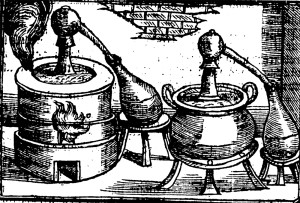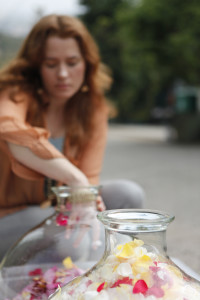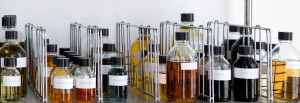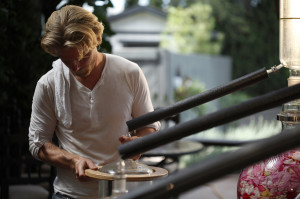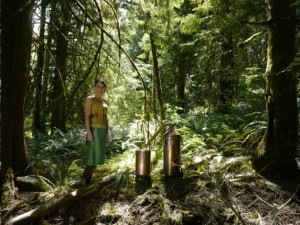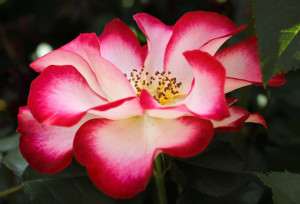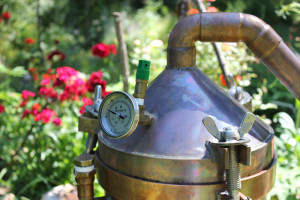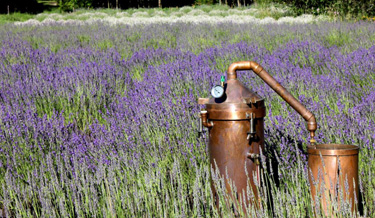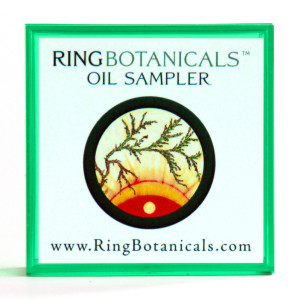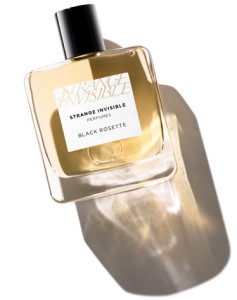Vintage Engraving -Distillation apparatus
Hydro-distillation was first refined by the ancient Greeks and now practiced at both the industrial and artisanal level. First the “science” – in the company of boiling water or steam, aromatic essential oils and hydrosols are extracted from plants in a still. In hydrodistillation the botanical material is placed in the still with the water, in steam distillation the material sits above the water and the steam is forced through the goods. Under heat and pressure the materials ultimately give up their aromatic vapors as both essential oils and the thinner, watery material known as hydrosol. There are three common elements of every distillation: the vessel (a glass bulb with a long neck, or a metallic version of the same), ‘the head’ and the receiver. The matter to be distilled is put in the vessel, it gets evaporated and reaches the head, where a process of condensation takes place. The result has to be captured by the receiver.
Alexandra Balahoutis of Strange Invisible Perfumes
Mass produced distillations often leave much to the imagination. They are often “fast food”, frequently using immature plants and flowers and high heat to increase yield and productivity. Many natural perfumers’ libraries are filled with essential oils that are resting, softening up as they mature to overcome their original “greenness” This month we took “virtual” tours of several botanical distilleries. First we visited Strange Invisible Perfumes (SIP) where master perfumer Alexandra Balahoutis works almost exclusively with hydrodistilled materials created in-house.
Alexandra’s development of her line is the work of a true visionary. In 2000, at a time when flankerism had reached mass hysteria, she founded a perfume house that used only natural perfumes, natural oils culled from only the highest quality materials that are distilled in-house or with expert hydro-distillers Alexandra partners with from all over the world. The brand is committed to making the ultimate fragrances in this way. In a mission statement last year in Cafleurebon, Alexandra spoke for so many of us when she wrote: “In Defense of Natural Perfumery as Olfactory Art”. Truly the pithiest question she raised was whether you would go to a five-star restaurant to enjoy a meal of synthetic foods.
Photo:Strange invisible Perfumes Hydro Distilled Oils
In the Perfumer’s Workshop we have seen a number of artisans try to capture the best “photograph” of the scent profile of botanicals using numerous alchemical methods that have been passed down to and refined by us. SIP is committed to the use of hydrodistillation as its alchemical catalyst. “Hydro-distillation is capable of capturing the entire alphabet of aroma molecules ideally present in a plant or flower. These fine chemicals, so vital to the nuances and highest beauty of a plant, cannot survive steam distillation. The process is too harsh and too brief. It is an industrial process, not a terribly artisanal one. This doesn’t mean it is bad. It just means that it isn’t the ultimate, and I am all about the ultimate.”
Photo: Strange Invisible Perfumes Master Distiller
All Strange Invisible Perfumes’ master distillers use copper and glass stills depending on the materials, allow plenty of time for oils to mature before blending and in the final stage of production employ an especially high grade of alcohol for manufacture. Artisan perfumers are always looking for ways to improve their stock of alcohol, using natural grain and fruit alcohols in their creations. SIP uses a special esprit de cognac that predates the industrial revolution sourced from a California master wine distiller. Alex says: “It is like setting a precious gem in the most precious metal.”
We test drove her Black Rosette parfum. Interestingly, in the bottle it smells very cold and crystal clear with each note taking its own position but once applied to the pulse points the alchemical blend hits you with a flurry, a mélange of leather and a smashingly clean Moroccan mint open onto a dirty gothic rose that rises from the tomb like a vampire temptress. Natural perfume yes but a highly artistic statement that outshines its synthetic counterparts because of the veracity of the product. As we’ve said elsewhere, we want a rose to smell real or smell alien, Black Rosette overachieves both our expectations.
Jessica Ring of Ring Botanicals
Our journey heads north to Oregon and a distiller who captures both domesticated and wild botanicals with her portable copper alembic ( a cool Arabic word for still). Jessica Ring is straight out of PortlandiaRing Botanicals embodies the new hip spirit of localization. Her family farm raises lavender, rosemary, lemon balm and mint which originally were sold locally for medicinal purposes but are now also available to the rest of us online. She uses a diverse range of distillation methods depending on what materials are in the still that day.
Orgeon rose used for hydro sols
Hydrodistillaton is primarily reserved for roses where she does just a single distillation for hydrosol, the rose water grandma kept on her dresser. Rose otto, a true grail of an essential oil can then be made by mixing the hydrosol and small traces of oil recovered from the “first” and doing a second distillation. Ottos are the real and historical deal, unlike modern absolutes which use chemical solvents and while expedient also remove a lot of the essence of the matter.
Depending on season, Jessica packs the copper alembic in the back of her Subaru (Left Coast whip of choice) and heads into the forest to distill specific woods, resins and plant life. Distillation methods depend on the botanical in question, sturdy woods like firs and cedars respond best to steam distillation but most of her oils are made using a combination of hydro- and steam distillation. Part of the botanical is packed In the water and the rest sits above it. This works great for tough stuff like juniper where the needles rest in the water to break down the needles’ cuticles. Her essential oil sample pack features a variety of wild-crafted oils and a small pamphlet describing the medical benefits of each oil. Our favorite was the steam distilled Douglas fir oil she describes as a “spirit lifter”, we work with fir and know how sharp it can smell, but this was a warm well-rounded aroma that opens very soft and green with just an undertone of coniferous bite, and mellows down to a greenness that reminded us of a blend of hay and branches.
“Steam distillation alone yields a very vibrant, fresh oil with a piercing green quality, while hydrodistillation captures the deeper, buttery, resinous notes. The combination creates a well-balanced oil that has a wide spectrum of therapeutic use and many uses in perfume compositions.” Besides the knowledge she has acquired working with various materials, quality control is very basic, she rubs the hydrosol output between her hands and when it evaporates any off-notes are detectable and heat and pressure are then adjusted.
Photo: Ring Botanicals lavender fields and distillery
Sometimes Jessica will co-distill a number of plants in one batch for a limited run production, things like mugwort and late-blooming maillette lavender, Jessica Ring does a quince hydrosol that would make a logical building block for a fruit accord, the holy grail of natural perfumers, the way an iris accord is to the synthetic creator. Her blog is a great read from the distillation of Oregon’s largest sitka tree to many helpful ideas for creating modern natural perfumery accords.
It’s ironic to think of modern natural perfumers as pioneers, alchemy after all has been around longer than Christmas but here we are rediscovering the ancient ways of the alembic. It’s been a fine month’s journey and there are so many other artisanal practices to learn more about in future workshops.
–David Falsberg, Monthly Contributor and Perfumer for Phoenicia Perfumes
For our Hydro-distillation draw
WORLDWIDE A sampler of six hydro-distilled oils from Ring Botanicals 1ml each of Buena Vista Lavender 100% Pure Essential Oil (Lavandula augustifolia), Black Poplar Oil (Populous trichocarpa), Concentrated Infusion in Fractionated Coconut Oil, Douglas Fir Oil (Pseudotsuga menziesii) – 20% in fractionated coconut oil, Western Red Cedar Oil (Thuja plicata) – 20% in fractionated coconut oil. ARP Rosemary Oil (Rosmarinus offficinalis) – 20% in fractionated coconut oil. and Western Juniper Oil (Juniperous occidentalis) – 20% in fractionated coconut oil.
USA RESIDENTS ONLY 50 ml EDP Strange Invisible Perfumes Black Rosette using hydro-distilled rose ($385 value)
To be eligible for our 100 percent Natural Perfumer’s Workshop Hydro-Distillation Draw, please leave a comment on what you learned about hydro-distillation, the country you live in, and which prize you would like to be entered for. Draw closes February 20, 2014
We announce the winners only on site and on our Facebook page, so Like Cafleurebon and use our RSS option…or your dream prize will be just spilled perfume.

